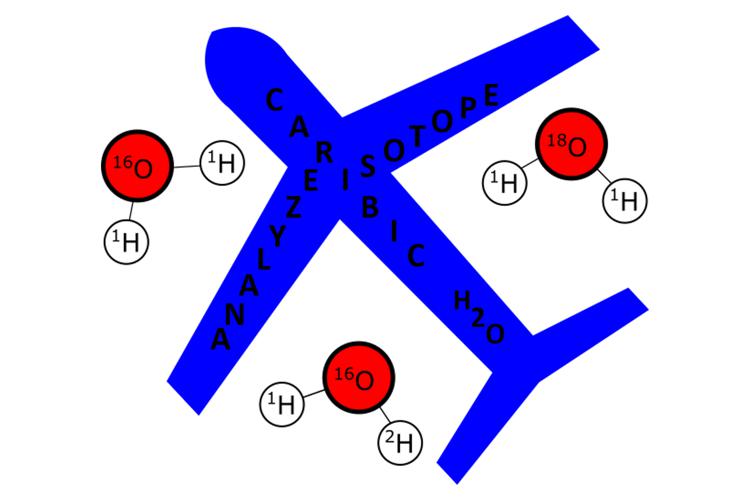- Share
- Share on Facebook
- Share on X
- Share on LinkedIn
Thesis defence
On December 17, 2024

Markus Miltner (LAME)
The atmospheric water cycle is of utmost importance for Earth’s climate. Water vapor is the most important greenhouse gas on earth, responsible for roughly 70 % of the greenhouse effect, and plays a dominant role in the global redistribution of energy by tropospheric transport of latent heat from the tropics towards the poles. Furthermore, water represents a major unknown in today’s climate models, due to the complexity of the feedback processes involving water vapor and clouds.
All relevant processes in the atmospheric water cycle have an influence on the isotope ratios of atmospheric water vapor. By measuring these ratios (δ18O and δD) we can deduce the importance of these processes and detect deficiencies in today’s climate models, as they include water isotopes in their simulations.
To this end, data obtained by remote sensing methods and high-resolution in-situ measurements are necessary. However, very little in-situ data on water isotope ratios in the atmosphere are available. The goal of this thesis is to help fill this gap thanks to the new CARIBIC H2O ISotope Analyzer (CHISA), an infrared spectrometer based on the highly sensitive Optical Feedback Cavity Enhanced Absorption Spectroscopy technique.
CHISA contains two spectrometers that will analyze the water vapor and the total water (= water vapor + ice crystals) in the atmosphere within the framework of IAGOS CARIBIC, a European project that converts a freight container into a flying high-tech laboratory. From next year on, this container will be installed on a Lufthansa A350 passenger airplane for several consecutive long-haul flights once every month, thus assuring a regular sampling of the atmosphere.
Date
16:00
Localisation
IPAG, 414 rue de la Piscine, salle Manuel Forestini
- Share
- Share on Facebook
- Share on X
- Share on LinkedIn